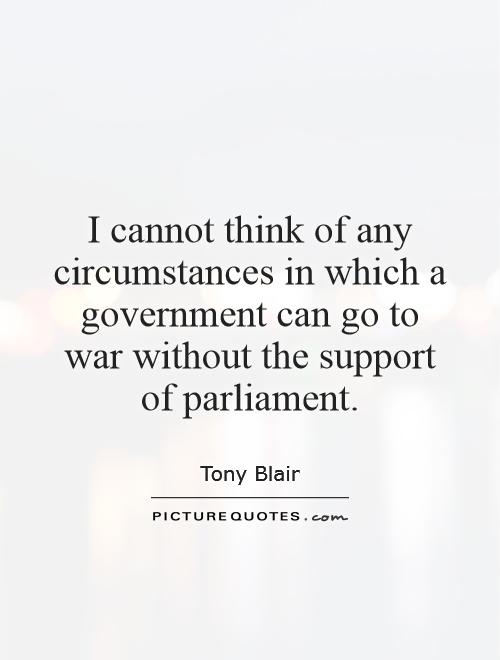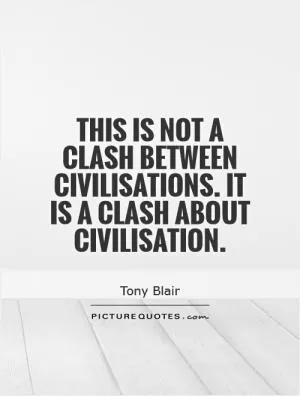I cannot think of any circumstances in which a government can go to war without the support of parliament

I cannot think of any circumstances in which a government can go to war without the support of parliament
Tony Blair, the former Prime Minister of the United Kingdom, is a controversial figure when it comes to the issue of going to war without the support of parliament. Blair's decision to join the United States in the invasion of Iraq in 2003 without a clear mandate from parliament has been widely criticized and has raised questions about the role of parliament in declaring war.Blair's decision to go to war in Iraq was based on the belief that Saddam Hussein's regime possessed weapons of mass destruction and posed a threat to global security. However, the evidence for this claim was later found to be flawed, leading to accusations that Blair had misled parliament and the public in order to justify the invasion.
Many critics argue that Blair's decision to go to war without the support of parliament was a violation of democratic principles. In a parliamentary system of government, the power to declare war is typically vested in the legislature, not the executive. By bypassing parliament and making the decision to go to war unilaterally, Blair undermined the principle of parliamentary sovereignty and accountability.
Furthermore, going to war without the support of parliament can have serious consequences for the legitimacy of the government and the country's international standing. Without the backing of parliament, a government risks alienating its own citizens and eroding public trust in the decision-making process. In the case of the Iraq war, Blair's decision to go to war without parliamentary approval led to widespread protests and a loss of credibility for his government.












 Friendship Quotes
Friendship Quotes Love Quotes
Love Quotes Life Quotes
Life Quotes Funny Quotes
Funny Quotes Motivational Quotes
Motivational Quotes Inspirational Quotes
Inspirational Quotes